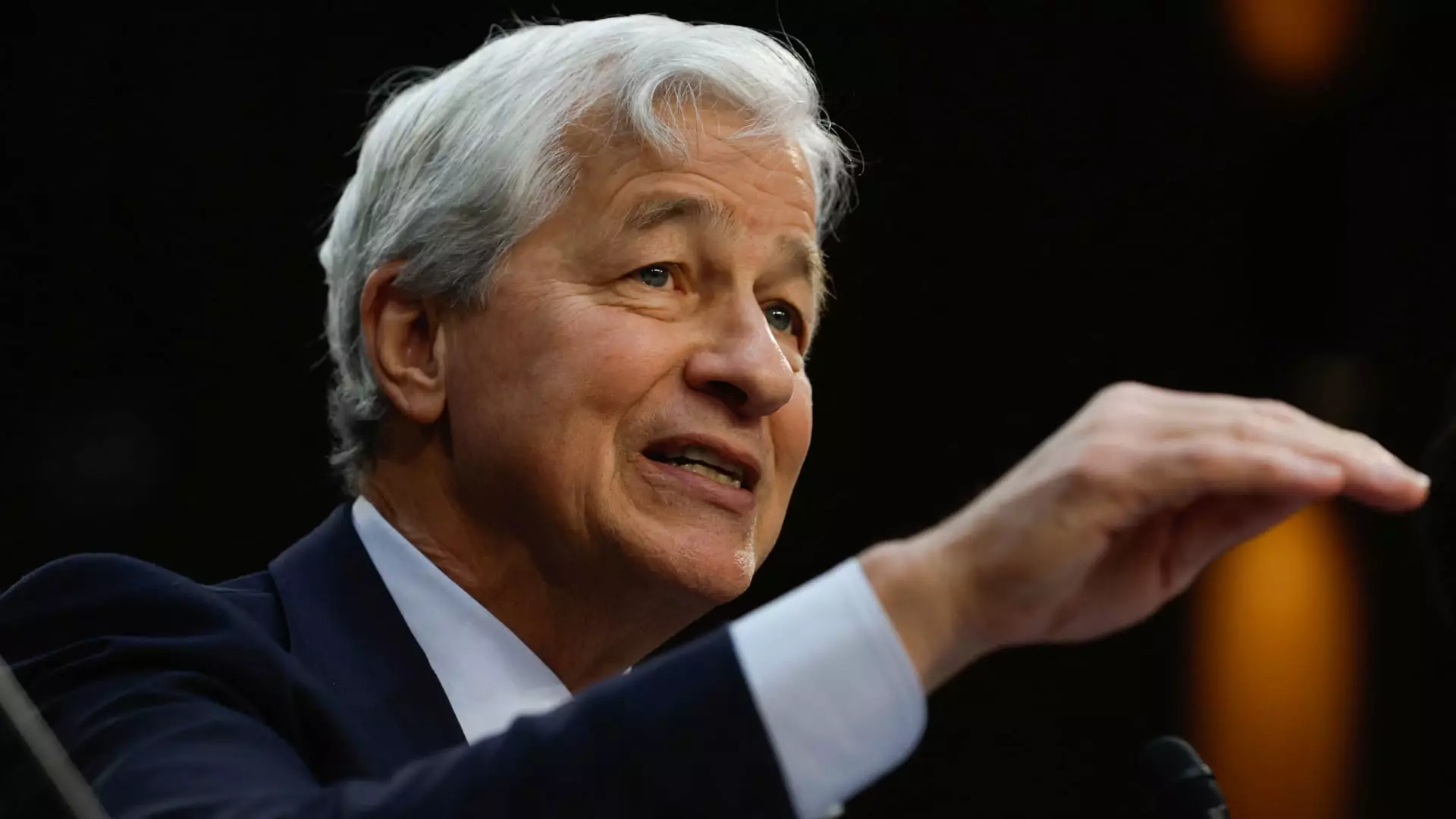Amidst the tumultuous landscape of global trade, J.P. Morgan Chase CEO Jamie Dimon has pulled no punches in his assessment of the corporate earnings outlook. His prediction for a decline in corporate earnings, particularly influenced by the erratic nature of President Donald Trump’s trade negotiations, reflects a brewing storm that has serious implications for businesses nationwide. This isn’t just a weather forecast; it’s a call to action for corporate leaders to acknowledge that the current trade climate is not conducive to long-term planning. Dimon explicitly stated what many are feeling: the apprehension in the air has led several companies to withdraw their earnings guidance—a move that should send alarm bells ringing across boardrooms.
Falling Earnings Estimates: A Wake-Up Call
Dimon’s remarks about analysts reducing their S&P 500 earnings estimates by as much as 5% eerily foreshadow a future where corporate growth stalls. Not only does he predict that this number might plummet further—potentially to a negative growth rate within a month—but it also indicates a broader malaise in the corporate sector. As the S&P 500 represents the backbone of American business, what does a possible stagnation of its earnings signal for the economy at large? It’s an unsettling prospect, demonstrating that those watching from the sidelines may soon have to grapple with the harsh ramifications of uncertain economic policies.
Investment Hesitance: The Domino Effect
Dimon and J.P. Morgan’s CFO Jeremy Barnum have expressed a stark reality: clients are hesitant to commit to major investments or acquisitions. This is more than just companies being conservative; it signifies a paradigm shift in how businesses are approaching risk. Anecdotal evidence indicates a significant pull-back, not just from mega-companies but also from mid-market entities, which significantly contribute to job creation and economic dynamism. Such caution is a telltale sign of a destabilized environment—it hinders innovation, restricts growth potential, and can potentially stifle an economic recovery that is still, in many ways, fragile.
The Immediate Trumps the Long-Term
It’s particularly concerning when companies begin to prioritize immediate optimization of their supply chains over long-term strategic planning. This shift, as pointed out by Barnum, reveals a corporate strategy more focused on survival than on expansion. The current climate of policy uncertainty fosters an environment ripe for stagnation. When businesses are forced to pivot from long-term investments to short-term fixes, we lose the driving innovation that has historically set the United States apart.
Consumer Behavior: A Silver Lining?
Amid this swirling chaos, consumers have so far shown resilience in their spending habits during the first quarter. However, it has been primarily driven by fear—namely, the fear of impending price hikes due to tariffs. While one could view this as a brief glimmer of hope, it begs the question: is consumer spending genuinely robust, or merely a reaction to a ticking clock? The duality of this situation reveals a deeper truth about our economy: it thrives on confidence, and the moment that confidence wanes, the whole system risks crumbling under its weight.
Understanding this dynamic is essential for executives navigating the shifting tides of corporate America. In a landscape where uncertainty reigns and the unknown lurks at every corner, the ability to remain adaptable while still maintaining a vision for the future will be the hallmark of successful leadership.

